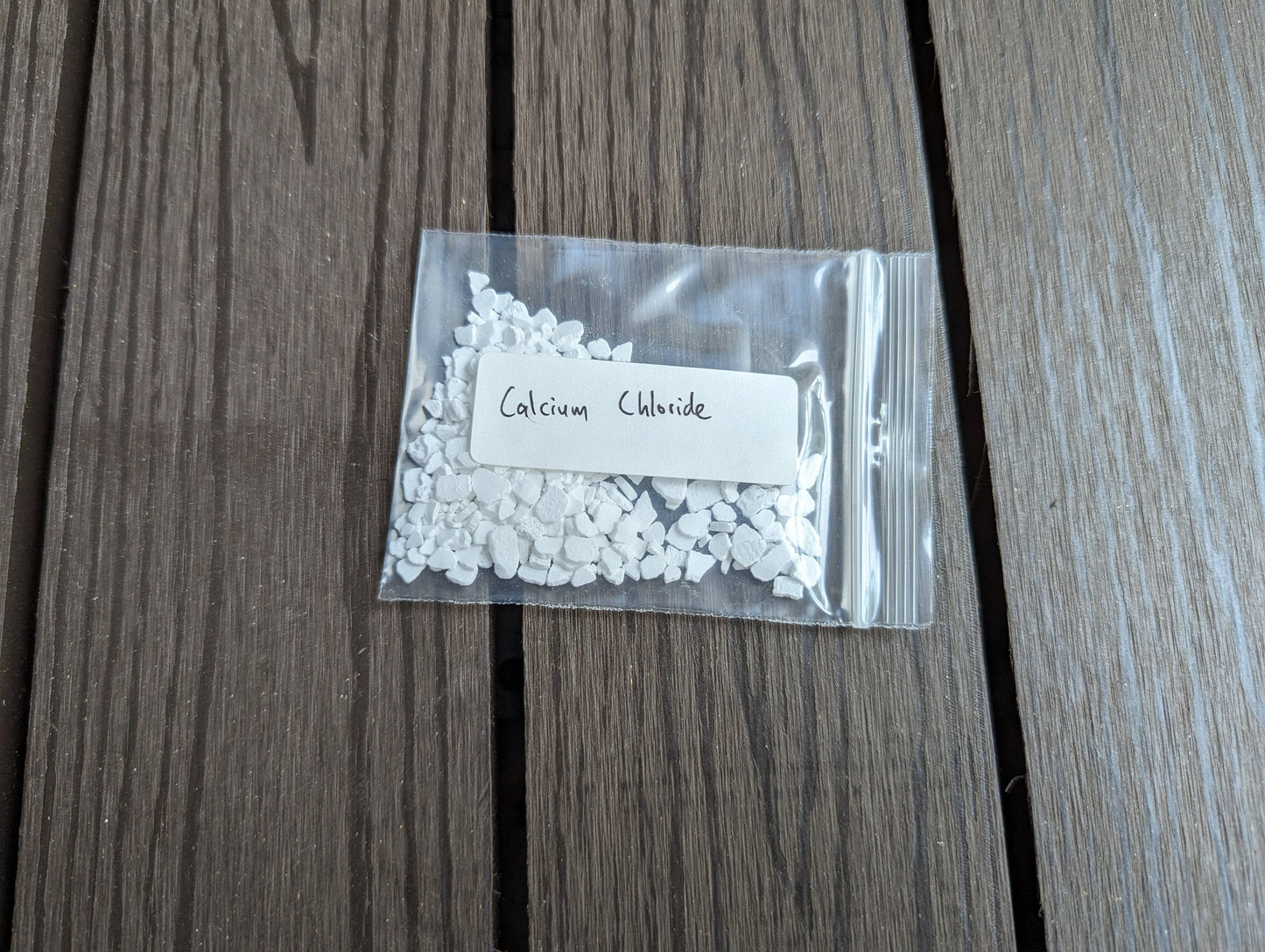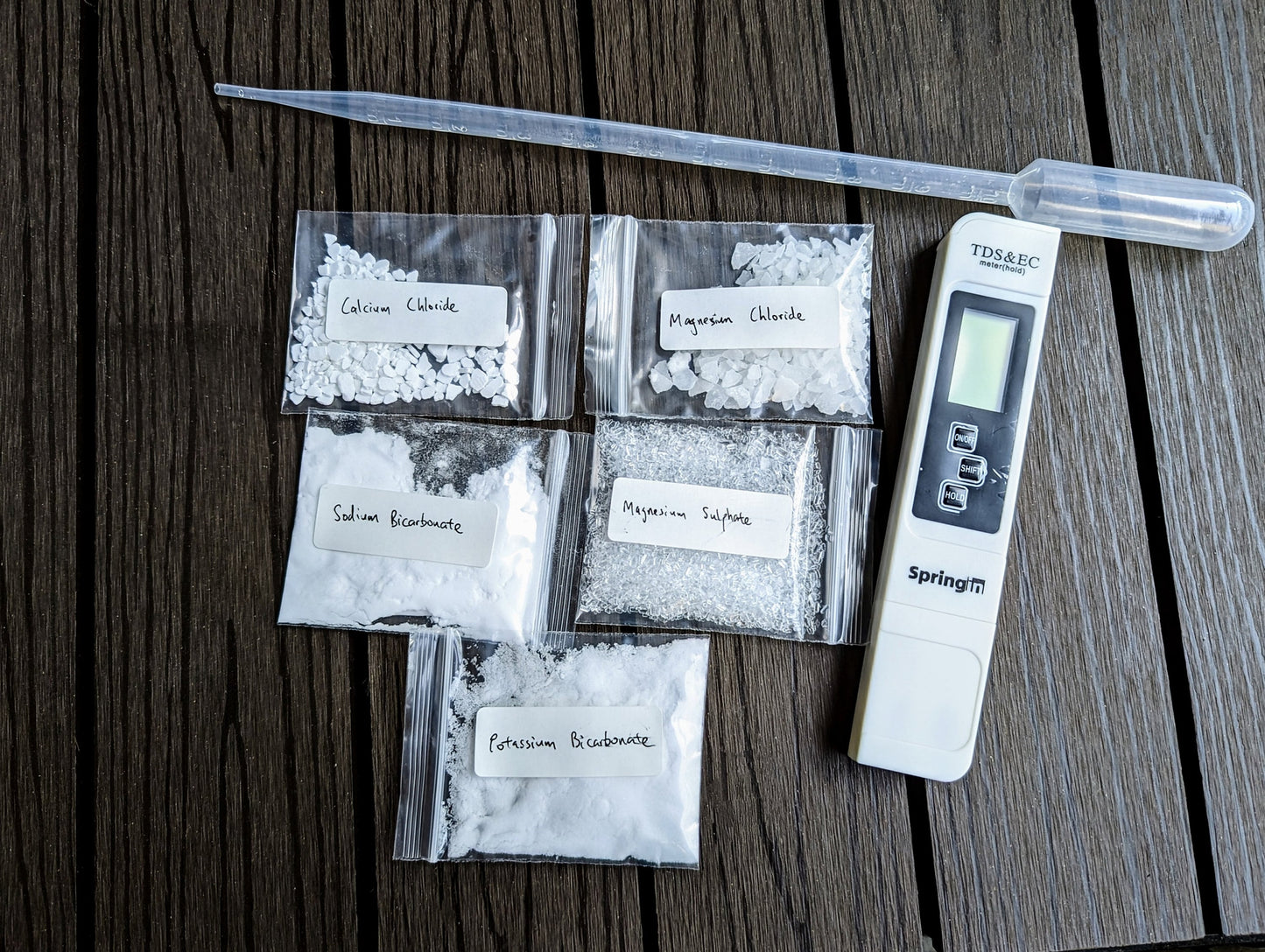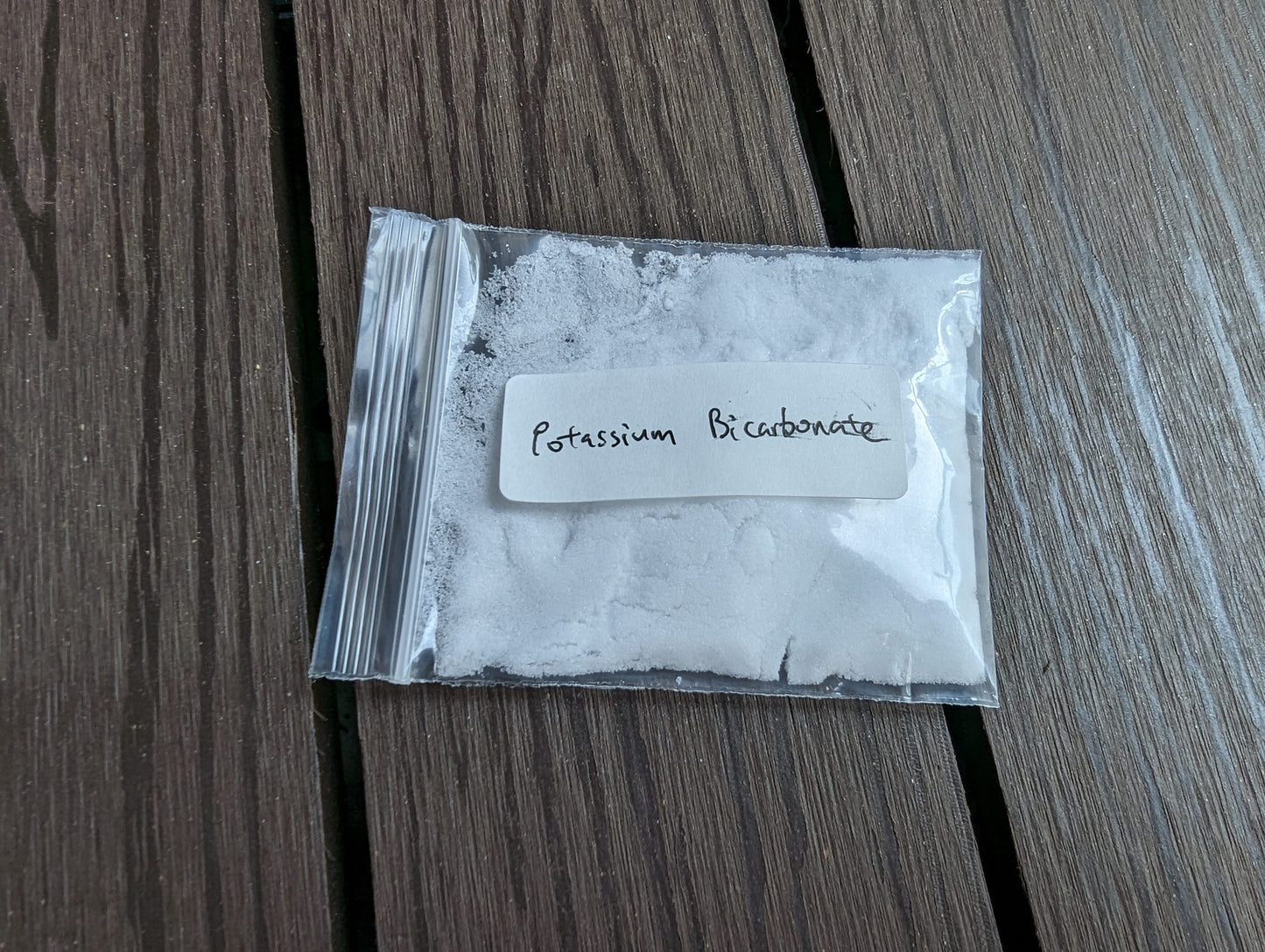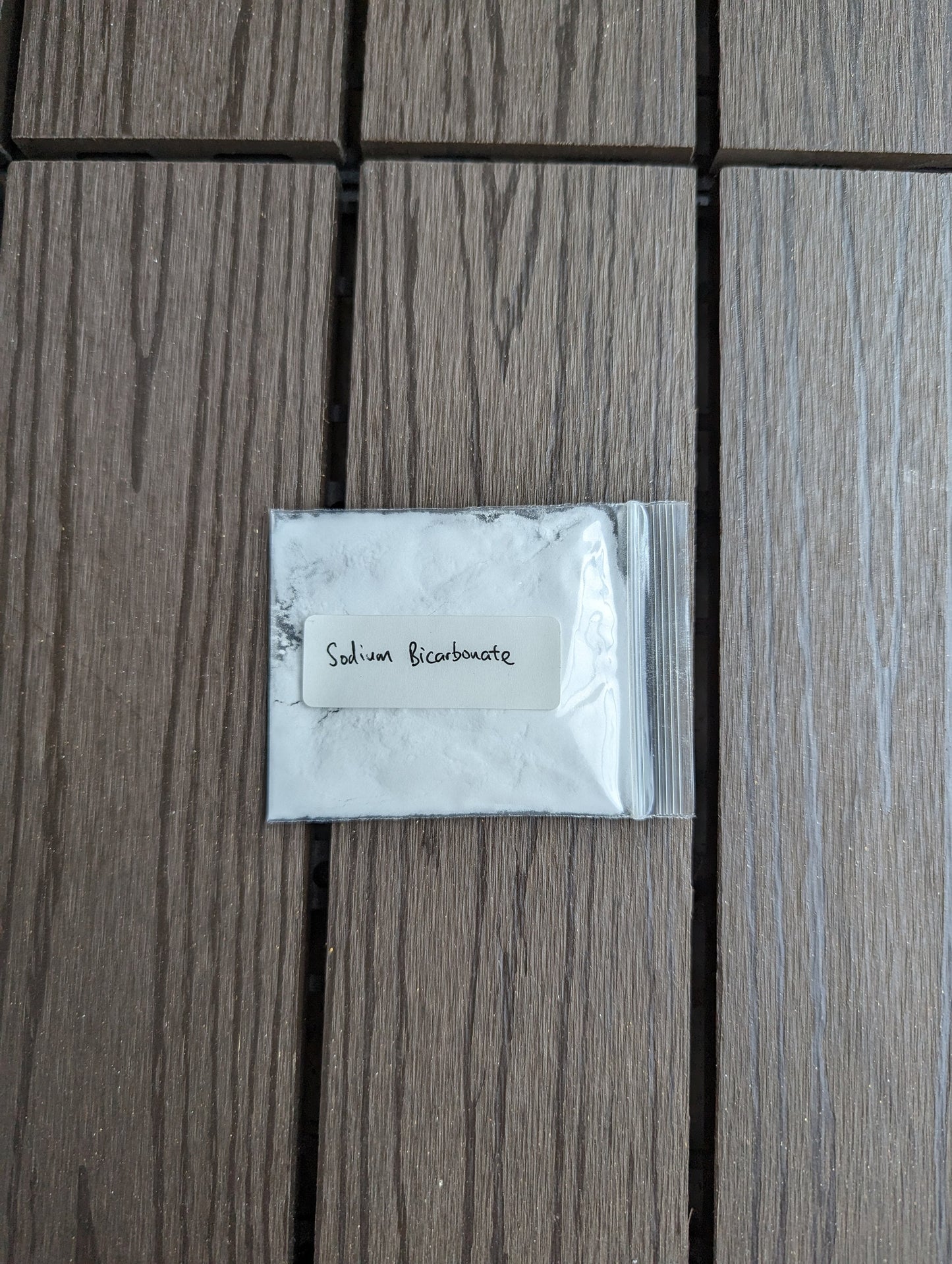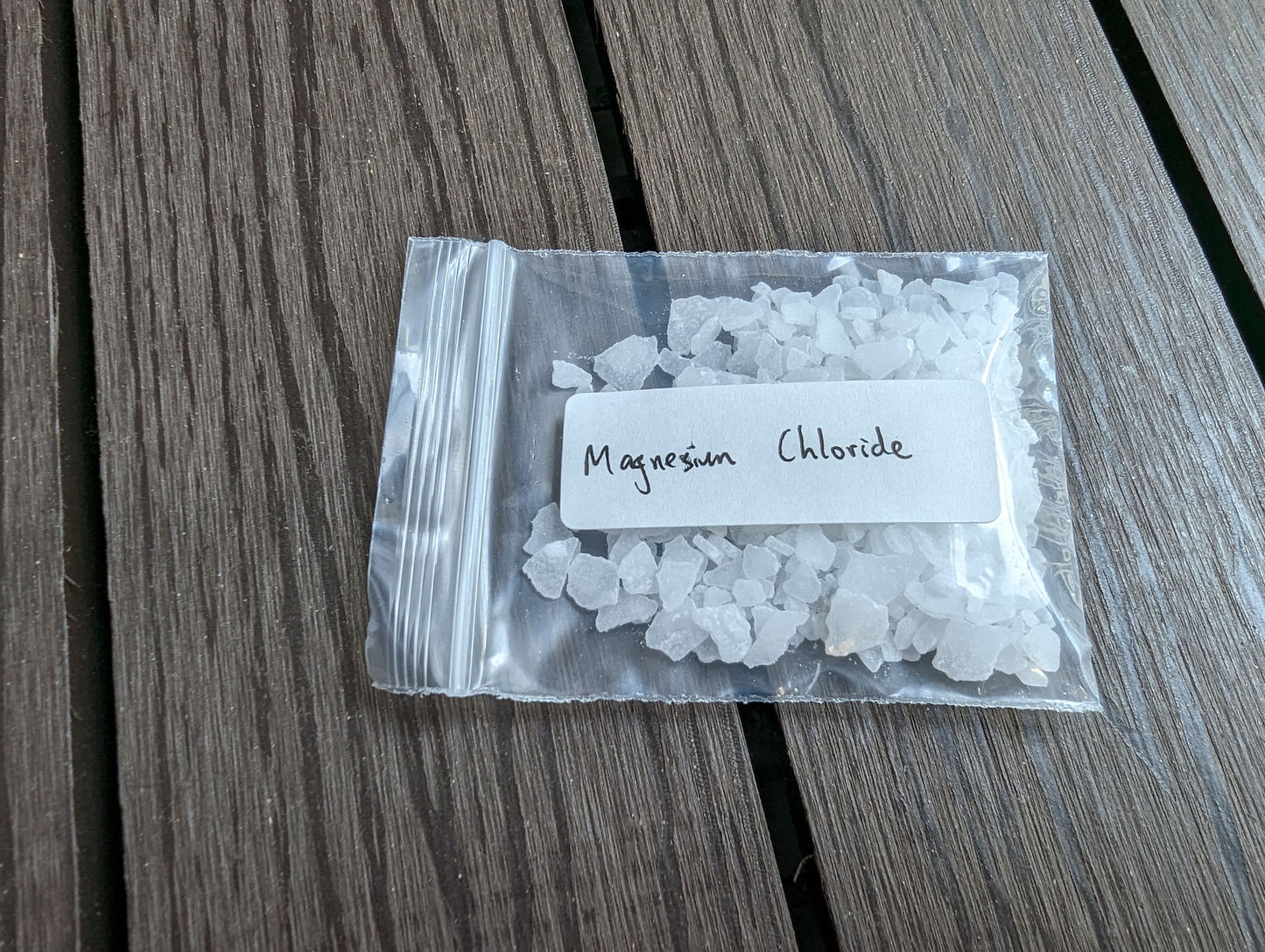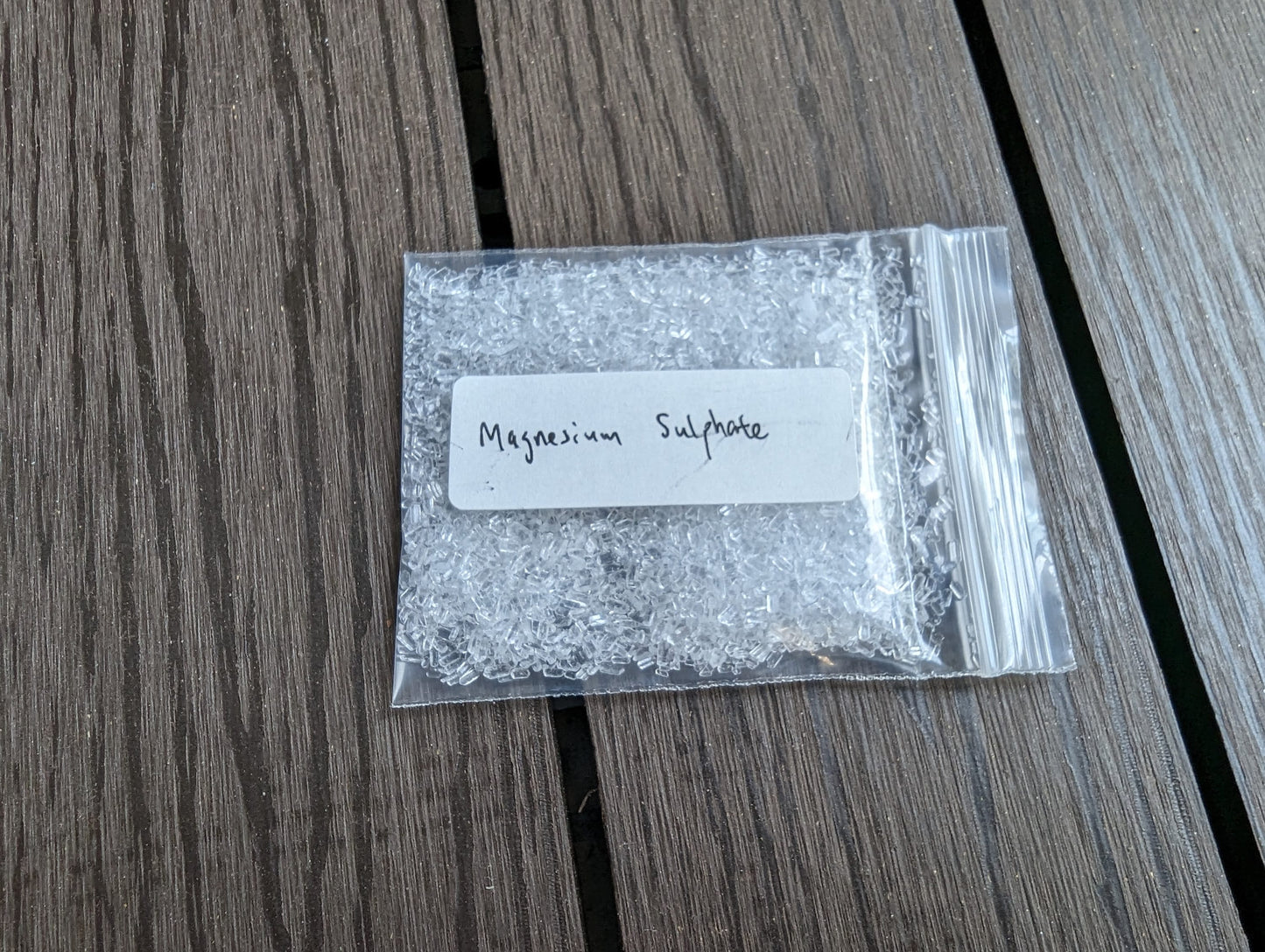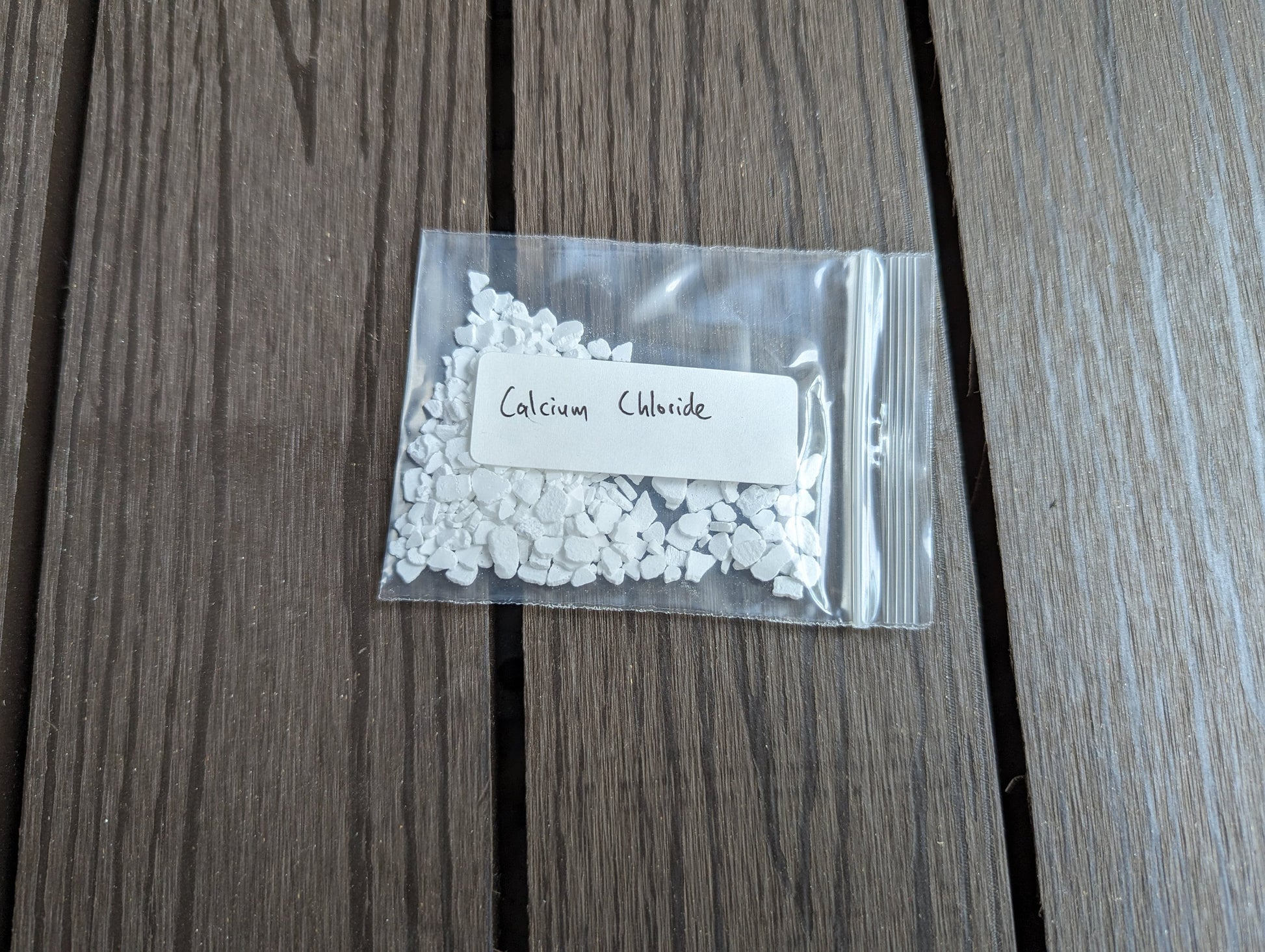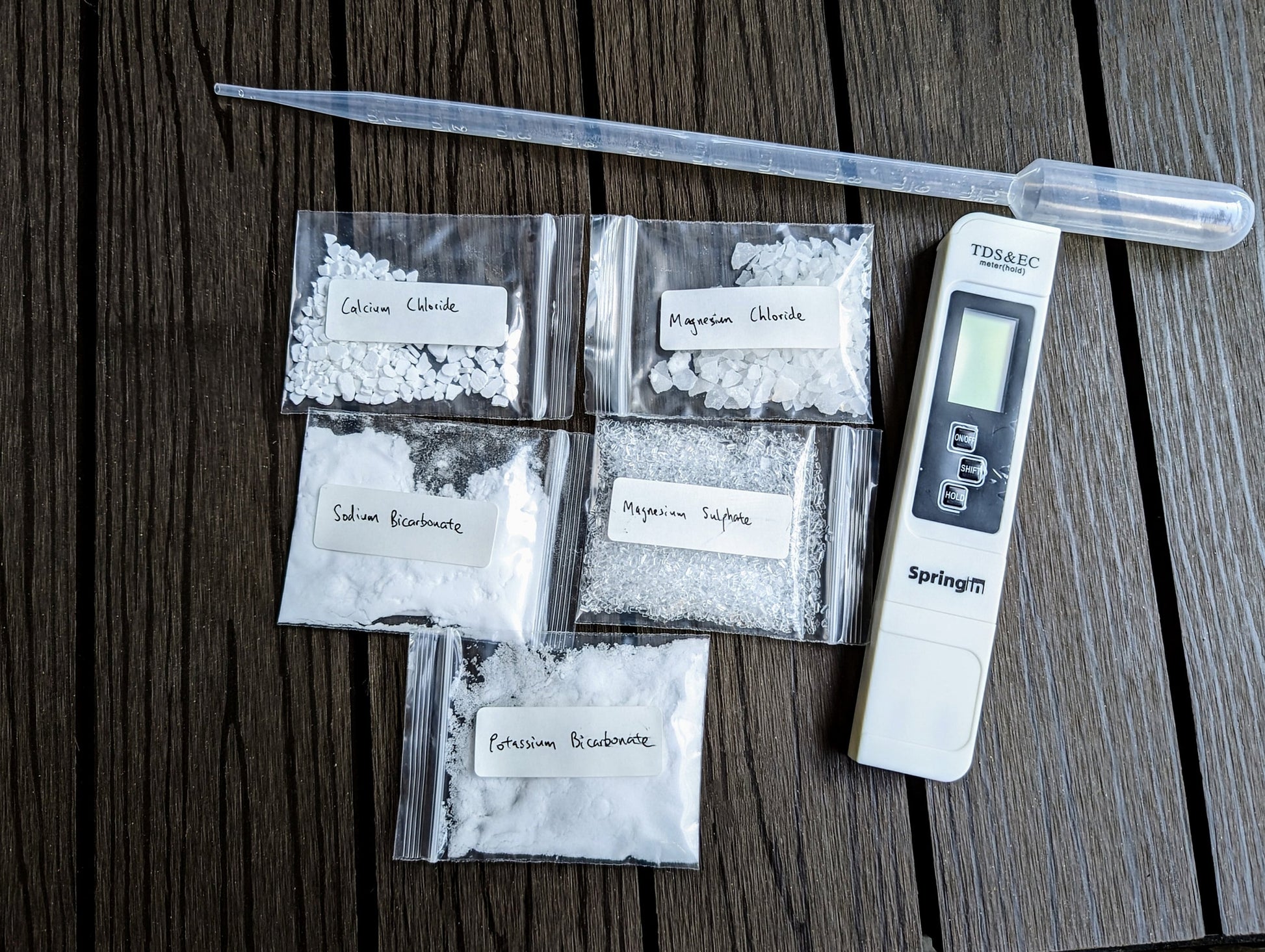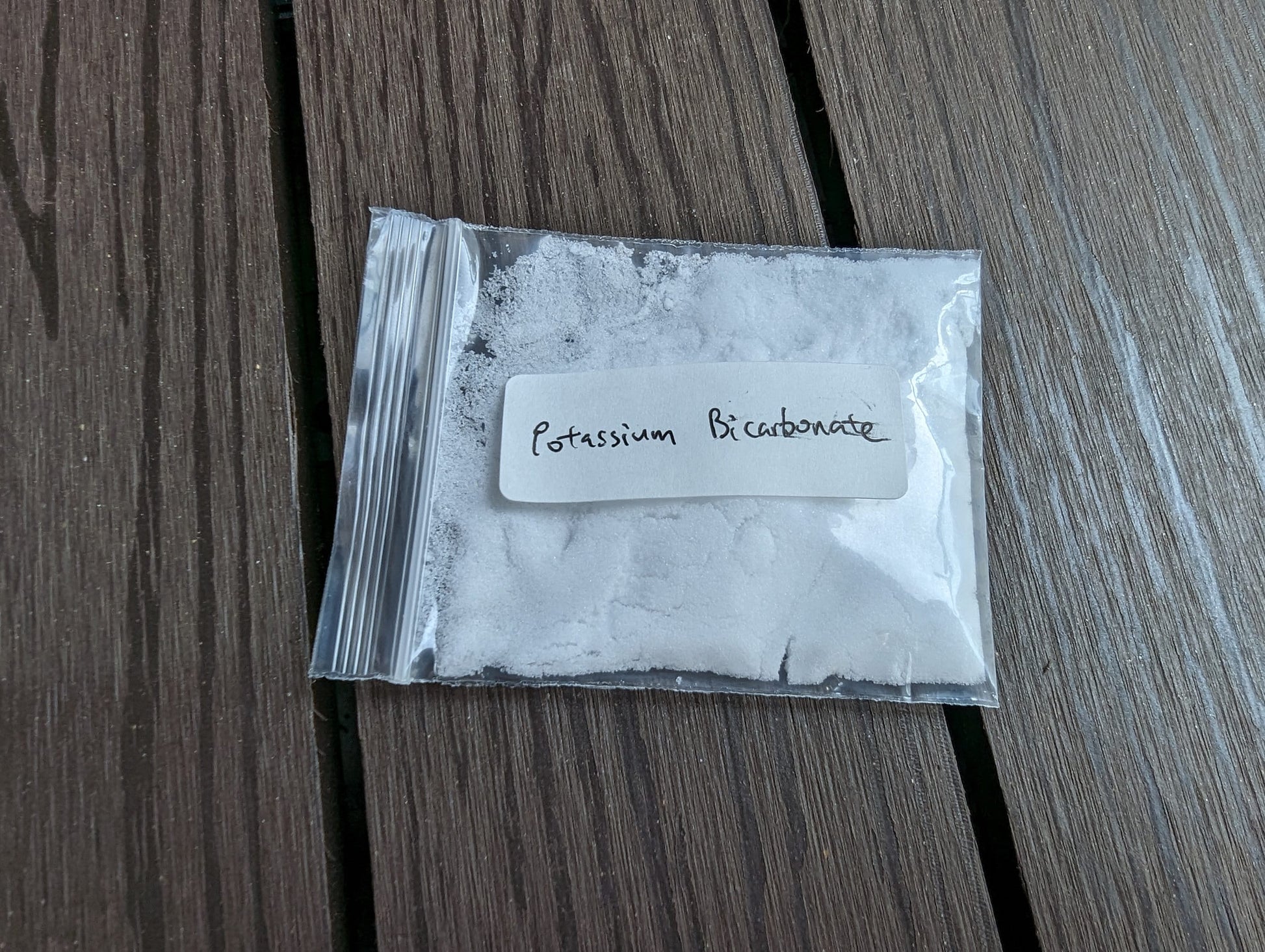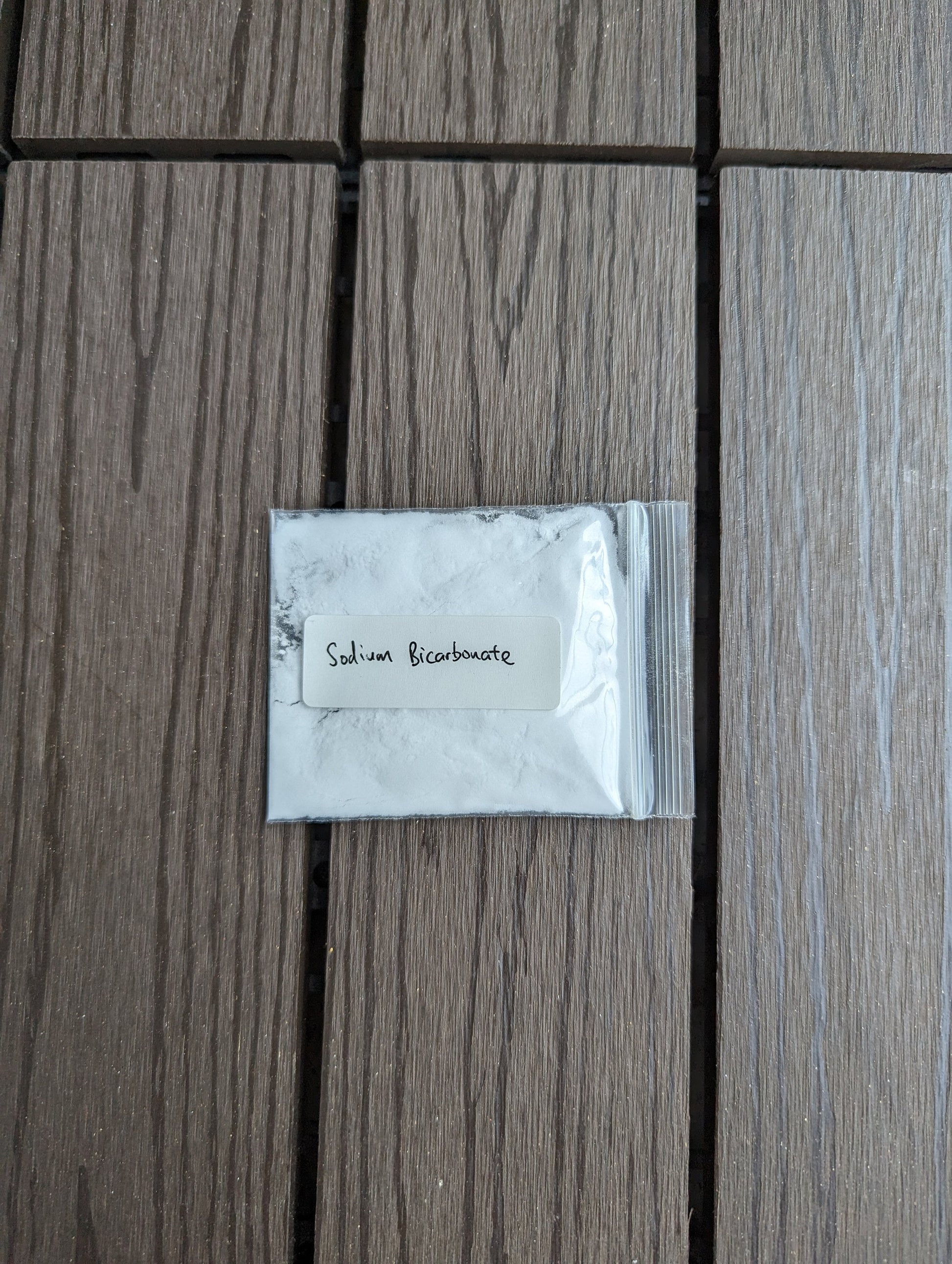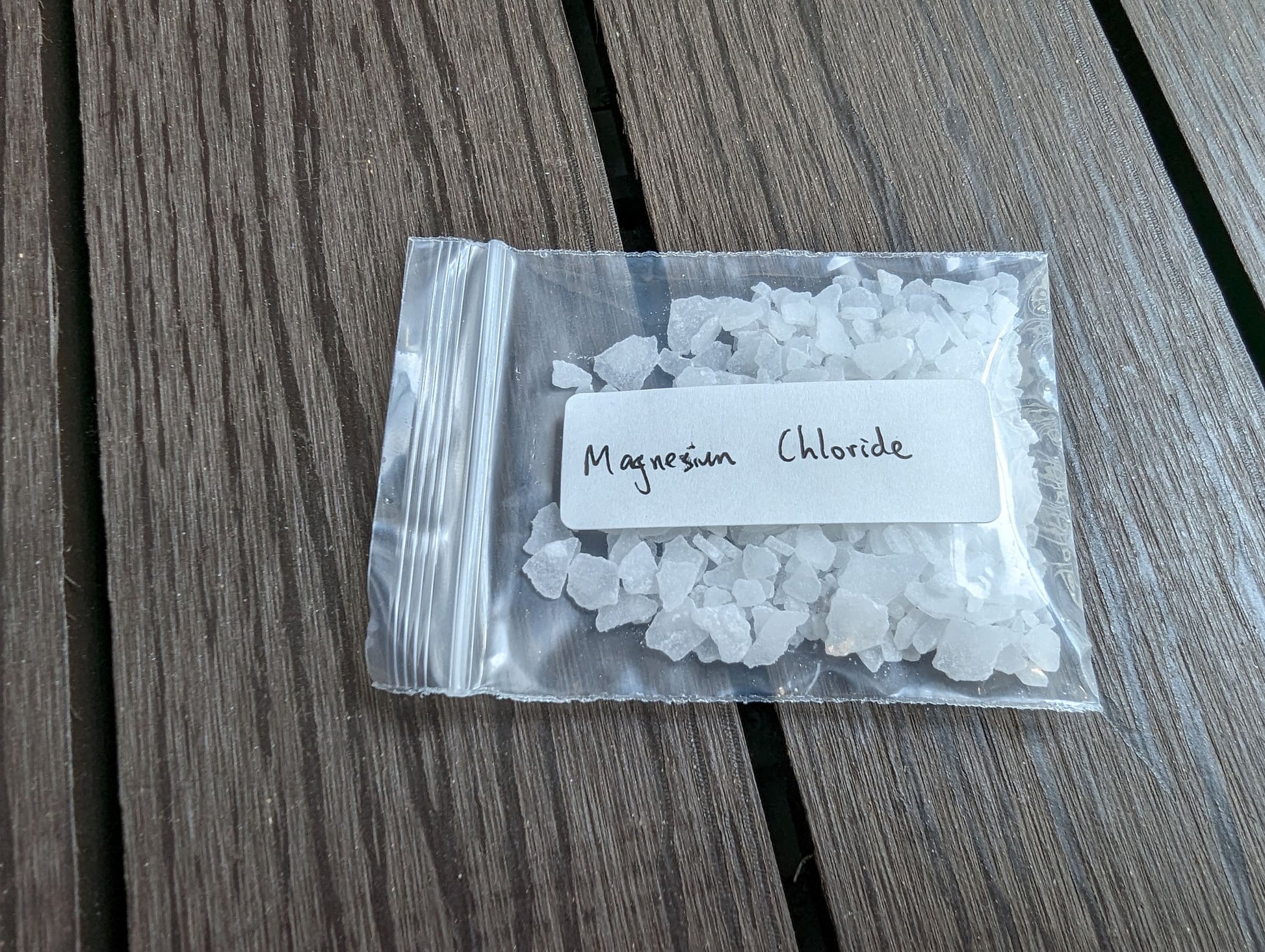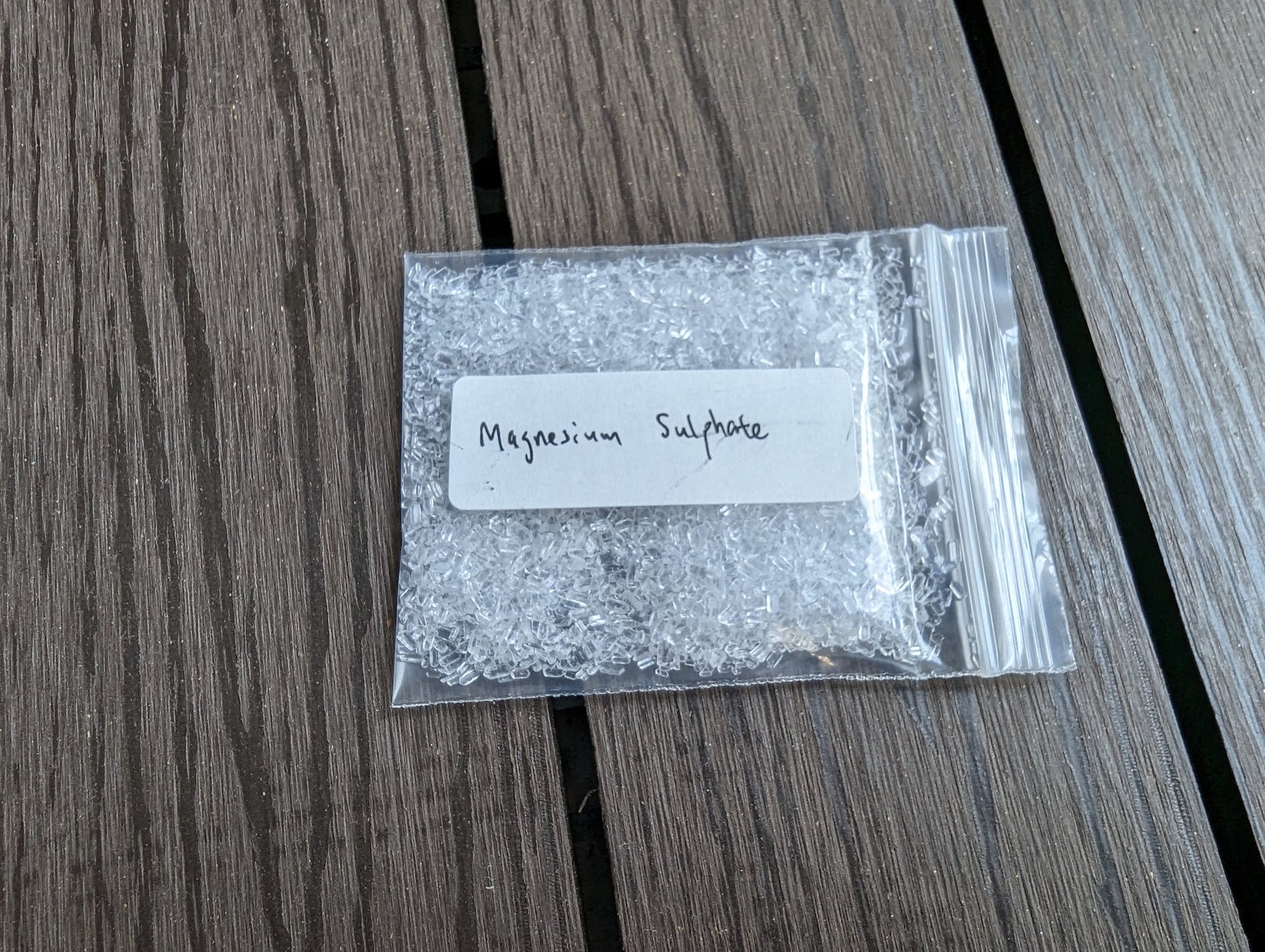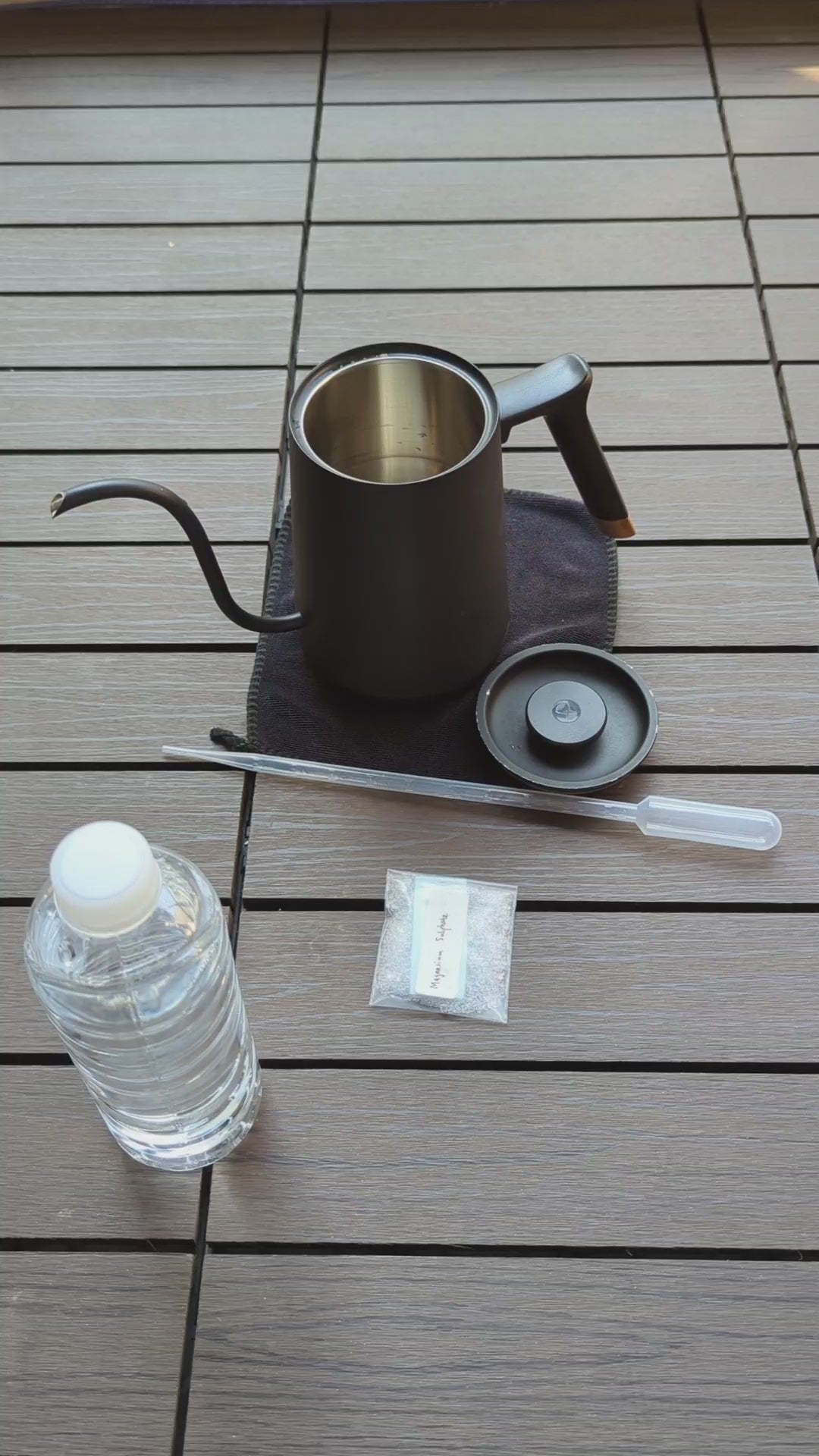UDG
Coffee Water Remineralisation Exploration Pack
Regular price
$4.00 SGD
Regular price
Sale price
$4.00 SGD
Unit price
per
Couldn't load pickup availability
Water makes up 98% of coffee and as such, the correct balance of minerals is crucial for the perfect cup and is something that professionals at competitions have been using for years. We are providing an affordable and convenient method of building your own or replicating water recipes.
Why introduce minerals?
Best expressed by zestcoffee.au:
"Calcium, Potassium and Chloride together bring a lot of sweetness, a heavier body, a rich coating texture and a delicious confectionary-like quality. They work incredibly well with Naturals or coffees that underwent a long fermentation to bring out more of the red and pink flavours.
Magnesium and Sodium produce a vibrant, sparkling and mouth-watering acidity that highlights tropical notes like pineapple, passionfruit and mango.
Bicarbonates adds structure to the cup, balancing and controlling the acidity. When coupled with Sulphate, in small quantities, it brings out more of the floral qualities in coffees that have floral notes like geisha varieties. This gave me more intense notes of hibiscus, rose and cherry blossom."
What makes this method good?
Method derived from awasteof.coffee,
Current water recipes are expressed in ions, rather than ppm which makes it hard to verify results with simple tools like a TDS (total dissolved solids, measured in ppm) meter.
The precision required, often requiring 2 or 3 decimal place scales are prohibitive in price.
The recipes also require accounting for weight of water account holding concentrates.
Lastly, minerals are often sold in bulk, no point investing large amount of money and storing 5 x 1lbs bags of minerals to experiment with coffee water
In our formulation, each 1ml (~1g) of concentrate in 1L (~1000g) of water raises ppm of your brewing water by 10ppm. This allows for easier mixing and the ability to verify results using a TDS meter. Want 40ppm hardness and 20ppm alkalinity? Just add 4ml and 2ml of your hardness and alkalinity concentrates respectively, then check that it reads approximately 60ppm. Remember to add to distilled water only.
Assuming even use, a set of 5 minerals can treat 312.5L of water (average of 80 ppm).
What we provide:
1. 5 bags of pre-weighted minerals of which 3 are 'hardness' sources (Magnesium Sulphate, Calcium Chloride, Magnesium Chloride), 2 are 'alkalinity sources' (Potassium Bicarbonate, Sodium Bicarbonate). They are 100% pure and food grade, sourced from health supplements and baking supplies.
2. TDS meter to verify results
3. Simple pipette to dose small amount of liquids.
What you need to provide:
5 x 500ml (16.9 Fl Oz) distilled water bottles. Must be distilled water, make sure nutritional label has 0 on everything.
Instructions:
1. Open each bag of mineral, remove the label and stick label onto the bottle.
2. Empty all minerals into 500ml (16.9 oz) bottle and shake hard for 30s to 1 min until fully dissolved.
You have created your own bottle of concentrate.
Recommendations for espresso:
Do not introduce any chlorides! These cause corrosion even at low levels. For example, La Marzocco recommends 30ppm or less chlorides, other brands recommend 0 ppm. My recommendations will be stick to Potassium Bicarbonate, Sodium Bicarbonate and Magnesium Sulphate as they do not introduce corrosion nor limescale that will cause boiler scaling.
The bicarbonates will cut back on the astringency of espressos while the magnesium and sodium will bring in the juicy acidity. Sulphates will help with the floral notes of some coffee.
Start with a minimum of 10ppm Sodium Bicarbonate and 20ppm Potassium Bicarbonate (espresso machines do not work with distilled water, the sensors will fail to detect water. Keep to a minimum of 30ppm TDS). If acidity is still too strong, slowly increase these incrementally in 10ppm. Sodium, however, does introduce a salty taste. If detected by your taste buds, cut back on Sodium Bicarbonate and swap in more Potassium Bicarbonate. If coffee taste muted, add in Magnesium Sulphate, beginning at 20ppm and slowly increase or decrease according to taste. This is essentially the espresso profile of Third Wave Water. Go for a range of 30 - 150 ppm TDS.
If you just want recommendations instead of trial and error, use 10ppm Sodium bicarbonate, 20ppm Potassium Bicarbonate, and 40ppm Magnesium Sulphate for a total of 70ppm.
If you want to try the effect of calcium and chlorides without damaging your machine, use the pipette and add 1 drop of Calcium Chloride or Magnesium Chloride or both to the puck (ideally puck screen) before brewing.
More recipes at: https://awasteof.coffee/how-to/mixing-water/
Recommendations for filter
Not much chance of equipment damage here so go full chef and try out the all the combinations according to taste, following the description of taste above. Go for a range of 60 - 150 TDS.
If you just want recommendations instead of trial and error, use 10ppm Sodium bicarbonate, 20ppm Potassium Bicarbonate, 10ppm Magnesium Sulphate, 10ppm Calcium Chloride, 20ppm Magnesium Chloride for a total of 70ppm.
More recipes at: https://awasteof.coffee/how-to/mixing-water/
Where to read more?
https://www.zestcoffee.com.au/2023/05/19/the-impact-of-ions-on-coffee-flavours/
https://awasteof.coffee/how-to/mixing-water/
Third wave water (TWW), Lotus water alternative
Why introduce minerals?
Best expressed by zestcoffee.au:
"Calcium, Potassium and Chloride together bring a lot of sweetness, a heavier body, a rich coating texture and a delicious confectionary-like quality. They work incredibly well with Naturals or coffees that underwent a long fermentation to bring out more of the red and pink flavours.
Magnesium and Sodium produce a vibrant, sparkling and mouth-watering acidity that highlights tropical notes like pineapple, passionfruit and mango.
Bicarbonates adds structure to the cup, balancing and controlling the acidity. When coupled with Sulphate, in small quantities, it brings out more of the floral qualities in coffees that have floral notes like geisha varieties. This gave me more intense notes of hibiscus, rose and cherry blossom."
What makes this method good?
Method derived from awasteof.coffee,
Current water recipes are expressed in ions, rather than ppm which makes it hard to verify results with simple tools like a TDS (total dissolved solids, measured in ppm) meter.
The precision required, often requiring 2 or 3 decimal place scales are prohibitive in price.
The recipes also require accounting for weight of water account holding concentrates.
Lastly, minerals are often sold in bulk, no point investing large amount of money and storing 5 x 1lbs bags of minerals to experiment with coffee water
In our formulation, each 1ml (~1g) of concentrate in 1L (~1000g) of water raises ppm of your brewing water by 10ppm. This allows for easier mixing and the ability to verify results using a TDS meter. Want 40ppm hardness and 20ppm alkalinity? Just add 4ml and 2ml of your hardness and alkalinity concentrates respectively, then check that it reads approximately 60ppm. Remember to add to distilled water only.
Assuming even use, a set of 5 minerals can treat 312.5L of water (average of 80 ppm).
What we provide:
1. 5 bags of pre-weighted minerals of which 3 are 'hardness' sources (Magnesium Sulphate, Calcium Chloride, Magnesium Chloride), 2 are 'alkalinity sources' (Potassium Bicarbonate, Sodium Bicarbonate). They are 100% pure and food grade, sourced from health supplements and baking supplies.
2. TDS meter to verify results
3. Simple pipette to dose small amount of liquids.
What you need to provide:
5 x 500ml (16.9 Fl Oz) distilled water bottles. Must be distilled water, make sure nutritional label has 0 on everything.
Instructions:
1. Open each bag of mineral, remove the label and stick label onto the bottle.
2. Empty all minerals into 500ml (16.9 oz) bottle and shake hard for 30s to 1 min until fully dissolved.
You have created your own bottle of concentrate.
Recommendations for espresso:
Do not introduce any chlorides! These cause corrosion even at low levels. For example, La Marzocco recommends 30ppm or less chlorides, other brands recommend 0 ppm. My recommendations will be stick to Potassium Bicarbonate, Sodium Bicarbonate and Magnesium Sulphate as they do not introduce corrosion nor limescale that will cause boiler scaling.
The bicarbonates will cut back on the astringency of espressos while the magnesium and sodium will bring in the juicy acidity. Sulphates will help with the floral notes of some coffee.
Start with a minimum of 10ppm Sodium Bicarbonate and 20ppm Potassium Bicarbonate (espresso machines do not work with distilled water, the sensors will fail to detect water. Keep to a minimum of 30ppm TDS). If acidity is still too strong, slowly increase these incrementally in 10ppm. Sodium, however, does introduce a salty taste. If detected by your taste buds, cut back on Sodium Bicarbonate and swap in more Potassium Bicarbonate. If coffee taste muted, add in Magnesium Sulphate, beginning at 20ppm and slowly increase or decrease according to taste. This is essentially the espresso profile of Third Wave Water. Go for a range of 30 - 150 ppm TDS.
If you just want recommendations instead of trial and error, use 10ppm Sodium bicarbonate, 20ppm Potassium Bicarbonate, and 40ppm Magnesium Sulphate for a total of 70ppm.
If you want to try the effect of calcium and chlorides without damaging your machine, use the pipette and add 1 drop of Calcium Chloride or Magnesium Chloride or both to the puck (ideally puck screen) before brewing.
More recipes at: https://awasteof.coffee/how-to/mixing-water/
Recommendations for filter
Not much chance of equipment damage here so go full chef and try out the all the combinations according to taste, following the description of taste above. Go for a range of 60 - 150 TDS.
If you just want recommendations instead of trial and error, use 10ppm Sodium bicarbonate, 20ppm Potassium Bicarbonate, 10ppm Magnesium Sulphate, 10ppm Calcium Chloride, 20ppm Magnesium Chloride for a total of 70ppm.
More recipes at: https://awasteof.coffee/how-to/mixing-water/
Where to read more?
https://www.zestcoffee.com.au/2023/05/19/the-impact-of-ions-on-coffee-flavours/
https://awasteof.coffee/how-to/mixing-water/
Third wave water (TWW), Lotus water alternative
